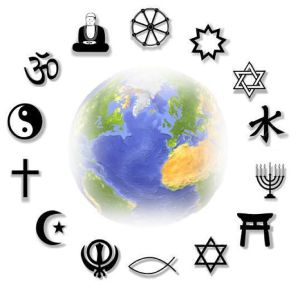Religious Education (RE)
At Joy Lane Primary School, Religious Education follows the Kent agreed syllabus. We aim to enable children to explore the meaning and purpose of their lives and to develop an appreciation of religion in contemporary life. In line with our whole school ethos and the British Values, we encourage the concepts of respect, understanding and tolerance of others, whatever their beliefs. RE lessons will also aim to foster an open and enquiring mind whilst developing empathy skills.
The principle aim of our RE curriculum is to explore ‘big questions’ about life in order to find out what people believe and what difference this makes to how they live so that children can make sense of religion by reflecting on their own ideas and ways of living and develop their understanding of their own and others’ beliefs. These challenging questions explore meaning and purpose in life, beliefs about God, ultimate reality, issues of right and wrong and what it means to be human. Our children will learn about, and from, religions and worldviews in local, national and global contexts in order to discover, explore and consider different responses.

In order to achieve this aim for RE, it can be broken down into three smaller aims:
- To know about and understand a range of religions and worldviews.
- To express ideas and insights about the nature, significance and impact of religions and worldviews.
- To gain and deploy the skills needed to engage seriously with religions and worldviews.
Here at Joy Lane, our whole curriculum offering strives to support our children in many ways, including developing a knowledge of the world, being able to question thoughtfully, showing diversity and tolerance - in line with our ethos of being Ready, Respectful and Responsible - and to communicate confidently and clearly. Our RE curriculum supports children in these areas by enabling them to engage with each other’s ideas, consider their own thoughts and beliefs and find the similarities and differences between their own ideas and those of other people, both in the class and around the world.
The agreed syllabus requires that all children learn from Christianity in each key stage. In addition, pupils will learn from the principle religions represented in the UK, in line with the law, which are Islam, Hinduism, and Judaism. Furthermore, children from families where non-religious worldviews are held, are represented throughout.
The RE curriculum sequence allows children to develop a strong sense of their own beliefs and perceptions as they go through the school, as well as developing an understanding of ideas and opinions that are different to their own. In Reception, the focus of the units of work is to allow the children to develop a positive sense of themselves and others, and to learn how to form positive and respectful relationships. In KS1, pupils should begin to develop their knowledge and understanding of a range of religions and worldviews. Children will begin to raise their own questions and express their own views in response to the content of the lessons and questions that are raised during discussions. In KS2, children will be extending their knowledge and understanding of religions and worldviews where they will be encouraged to be curious and ask increasingly challenging questions about religion, belief, values and human life.
RE Websites and Useful Links:
Primary resources, homework help and online games - BBC Bitesize
Find a wealth of animated videos and information about each religion on the BBC Bitesize website - simply follow the link, find your year group and choose 'Religious Education'.
